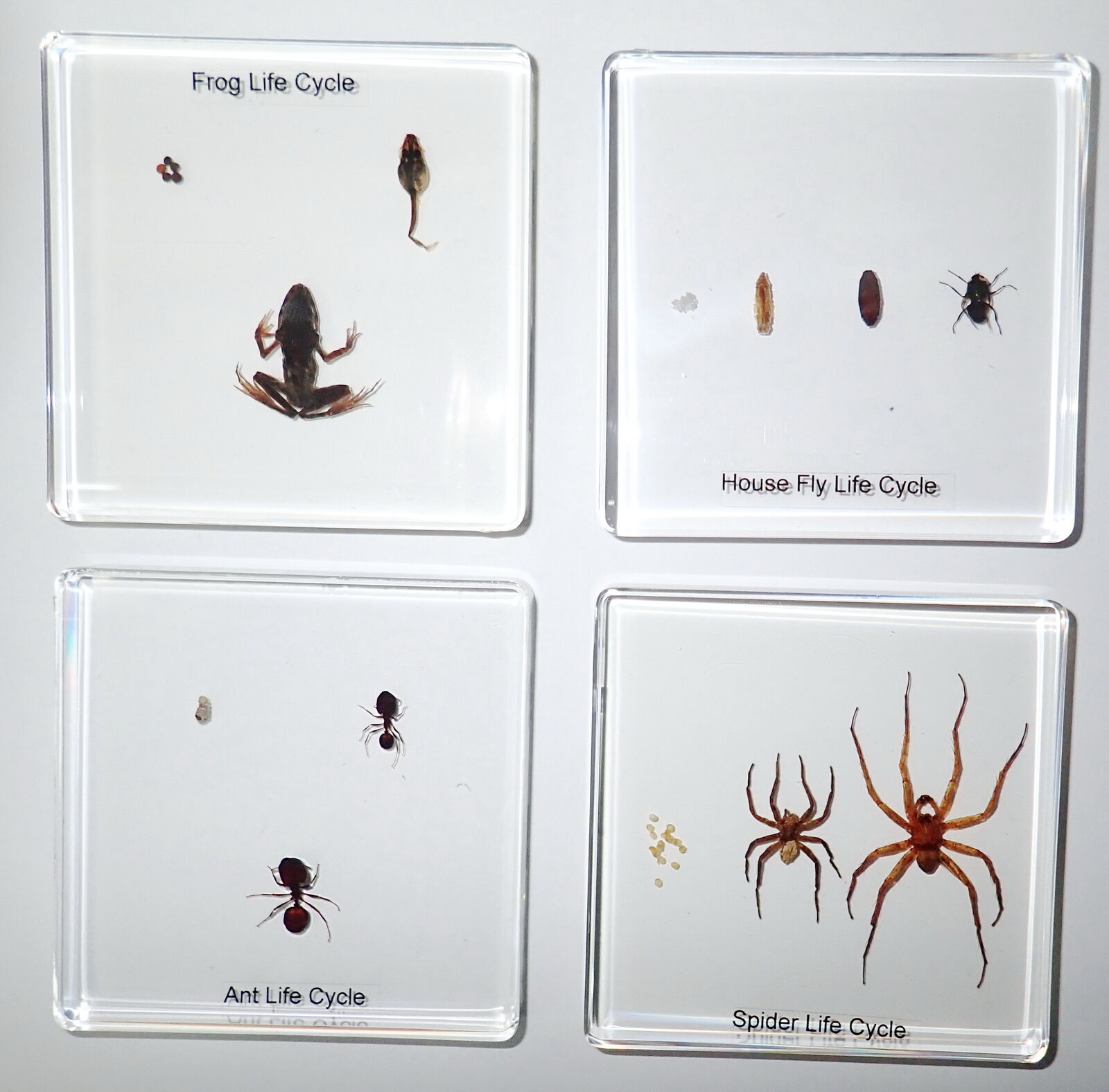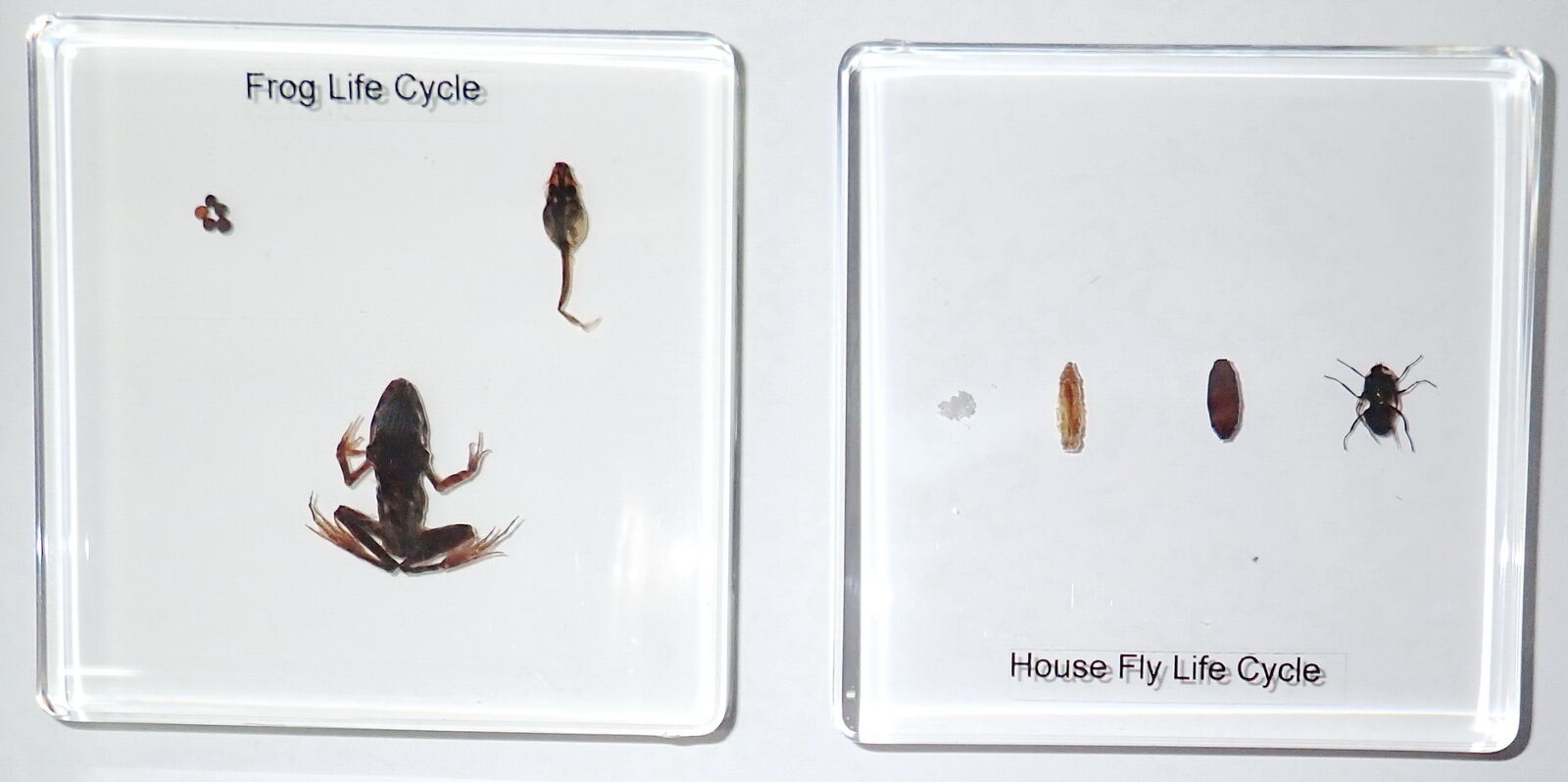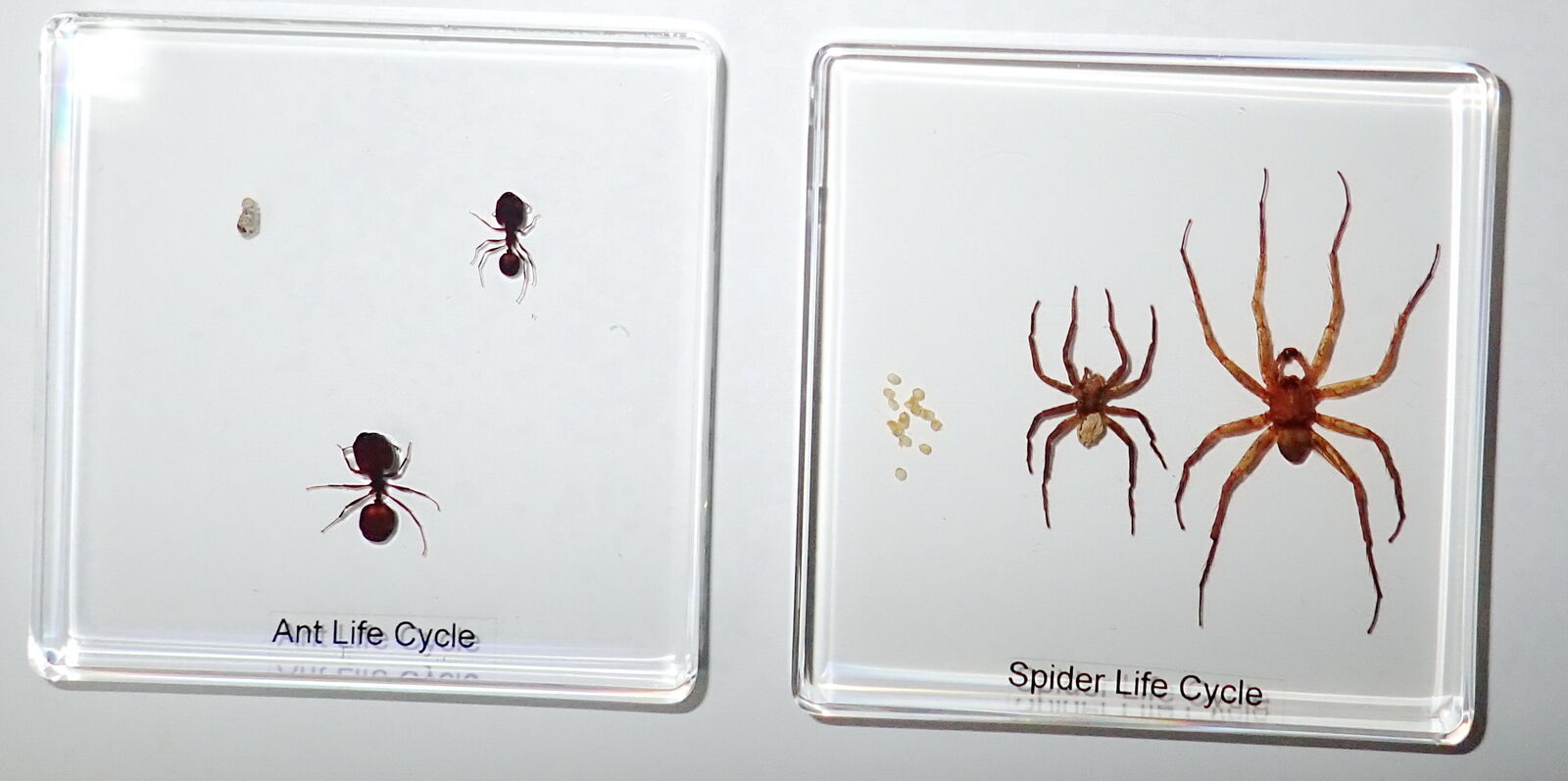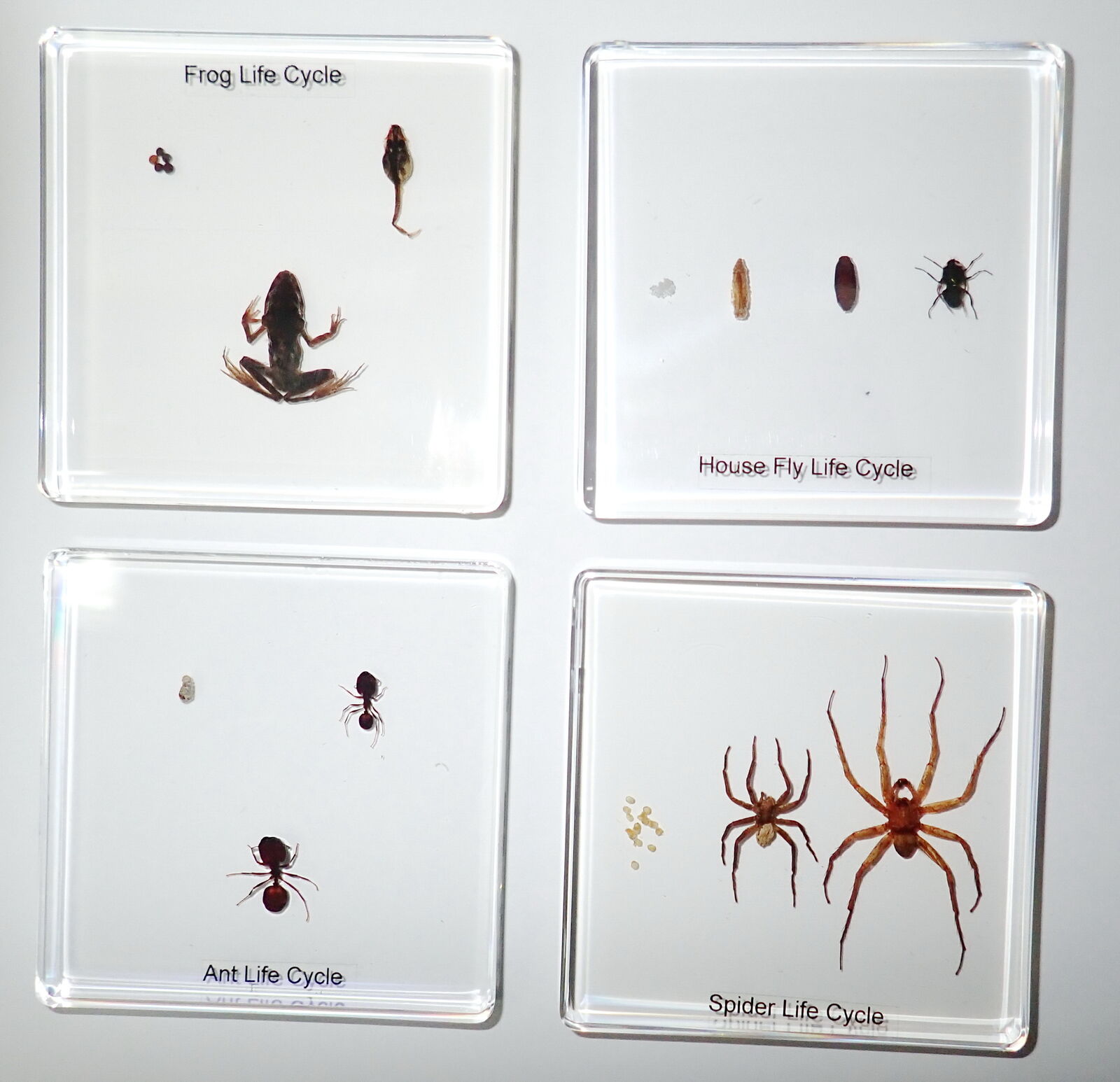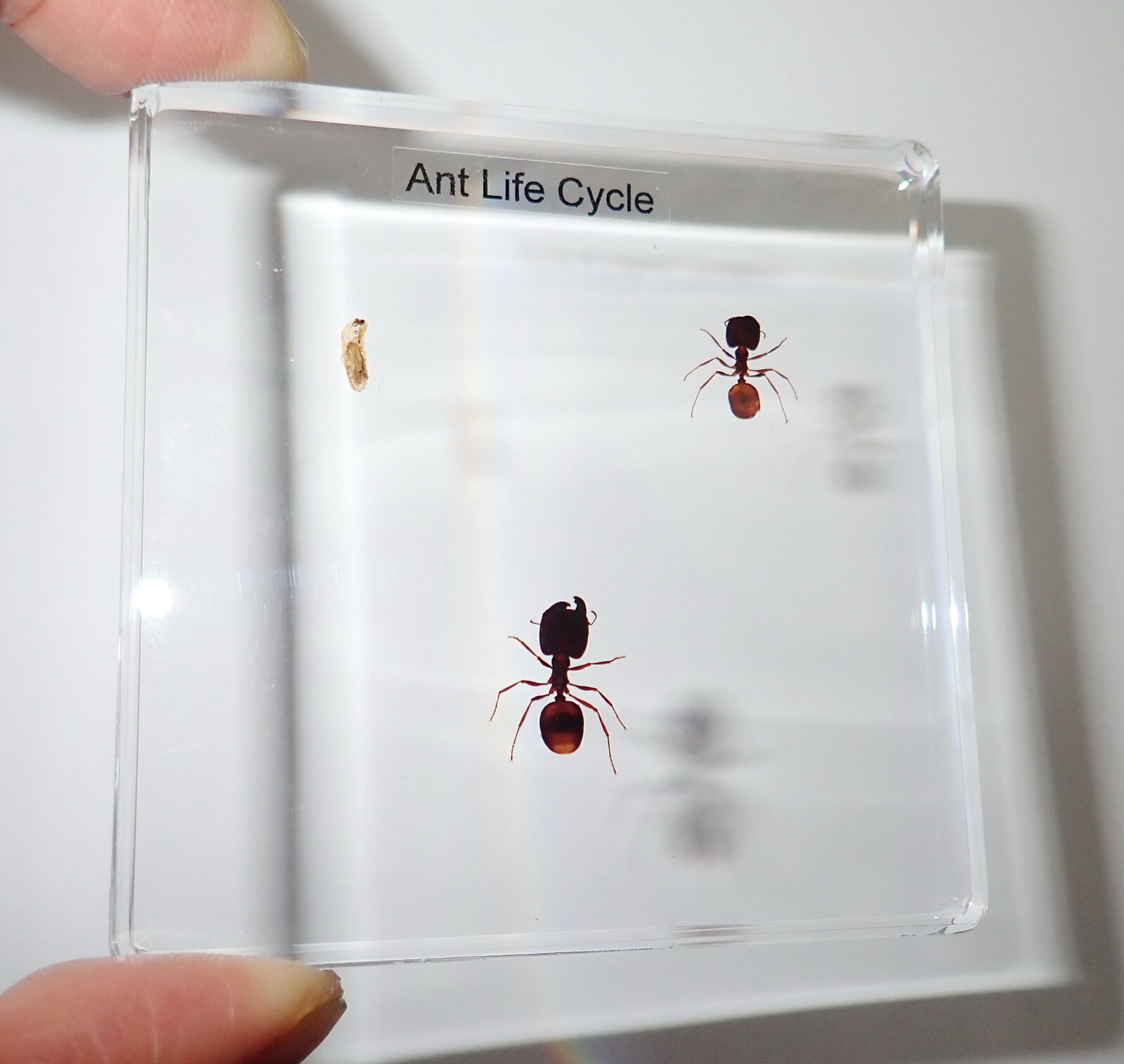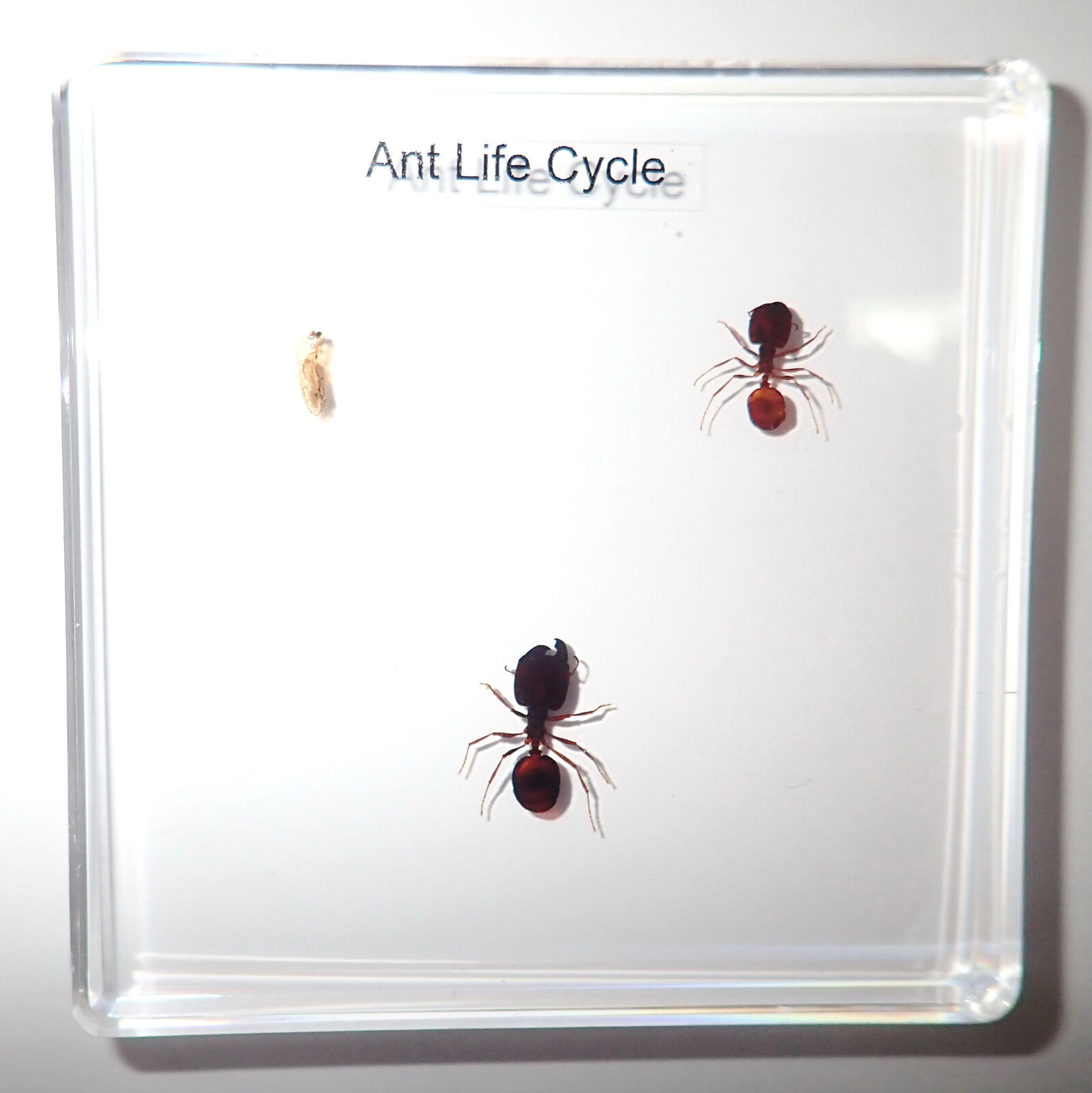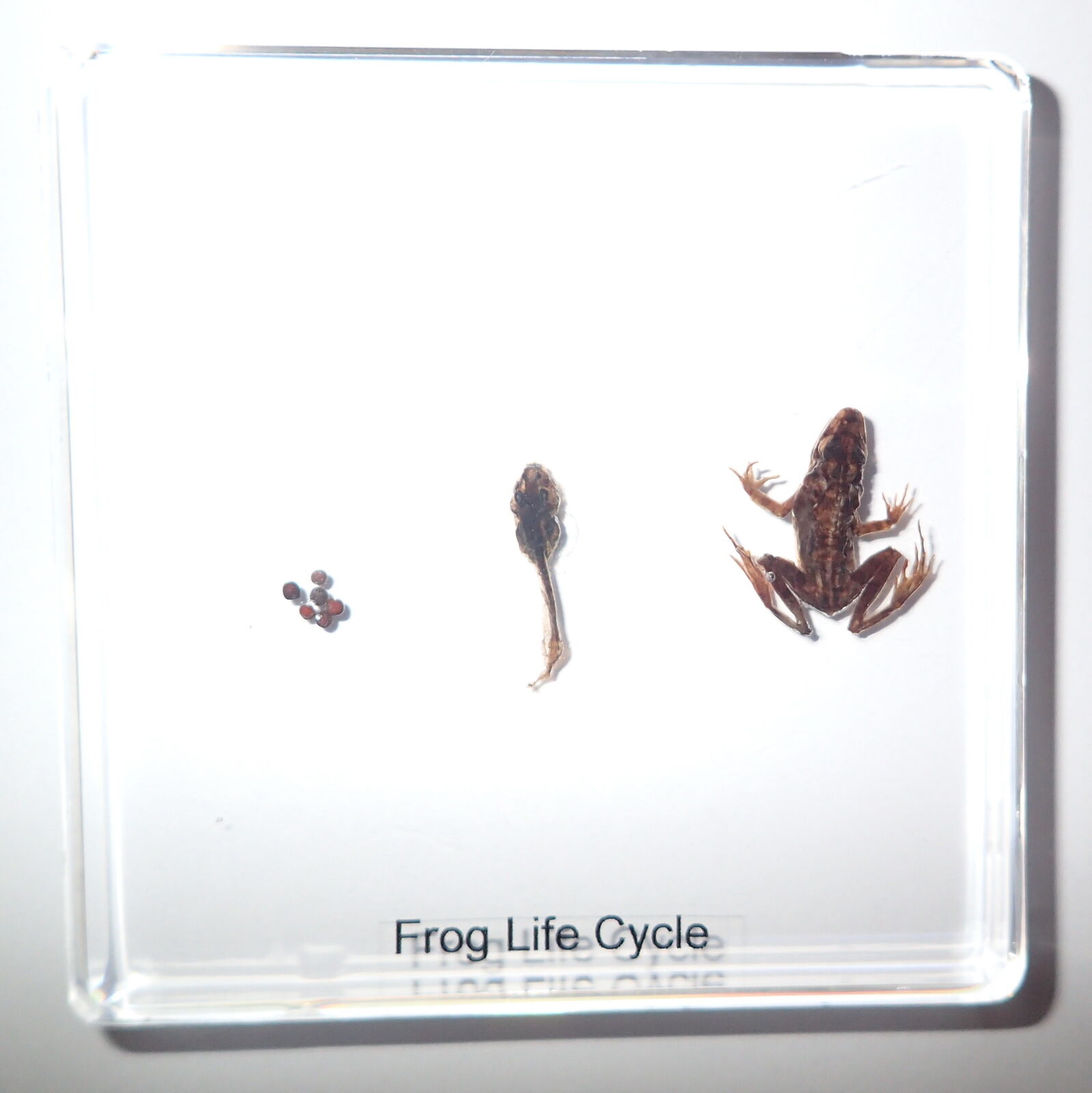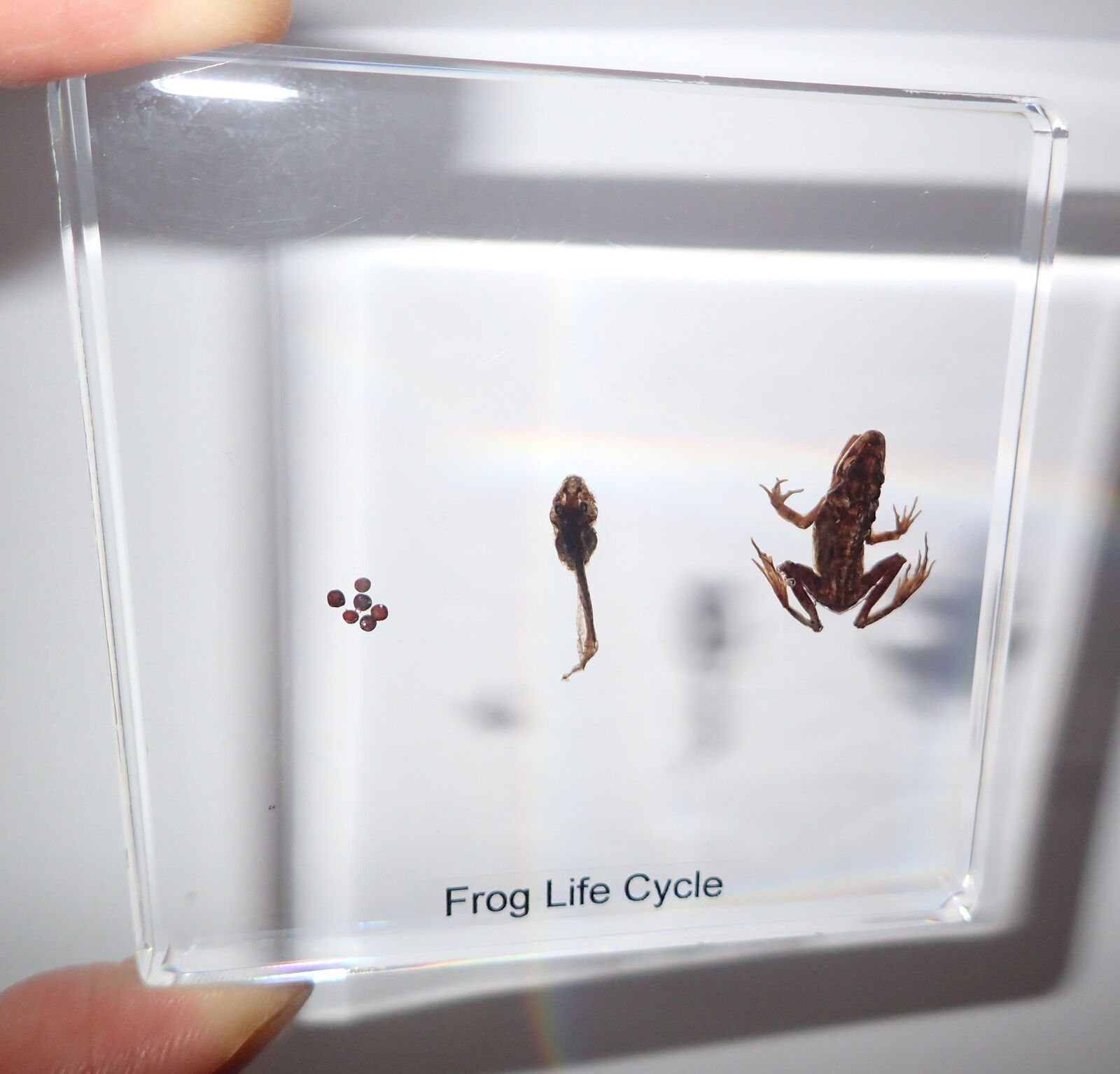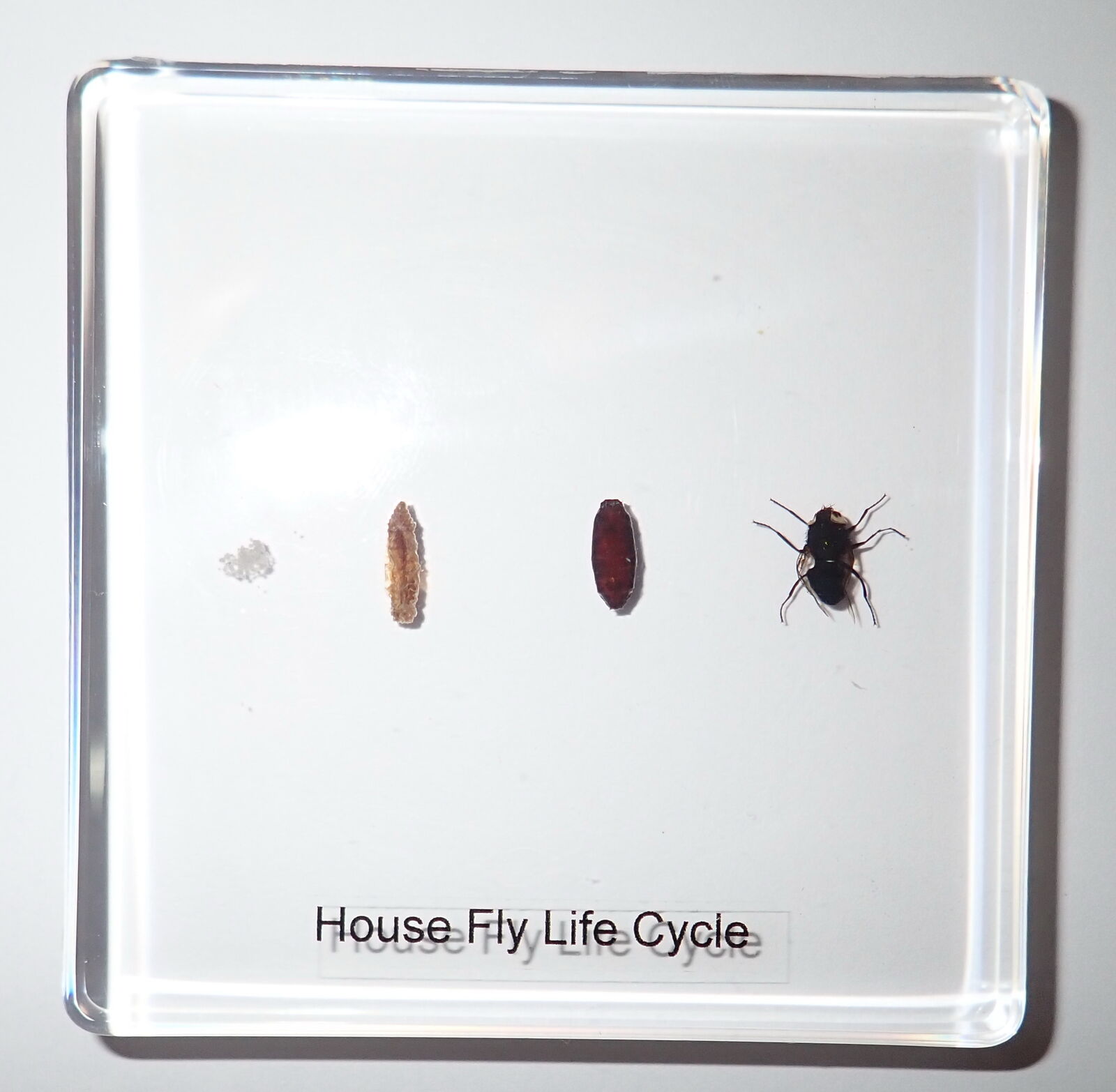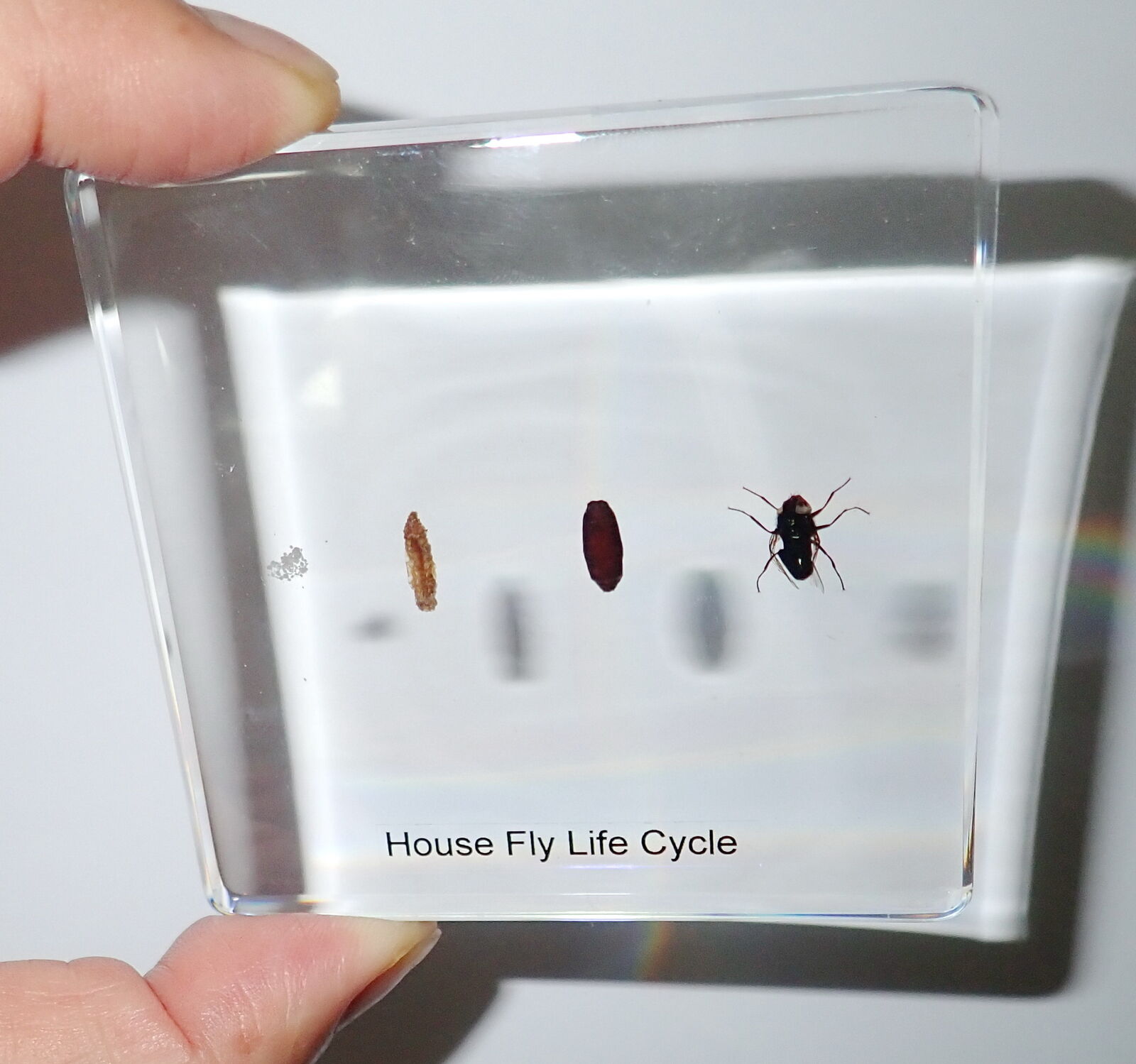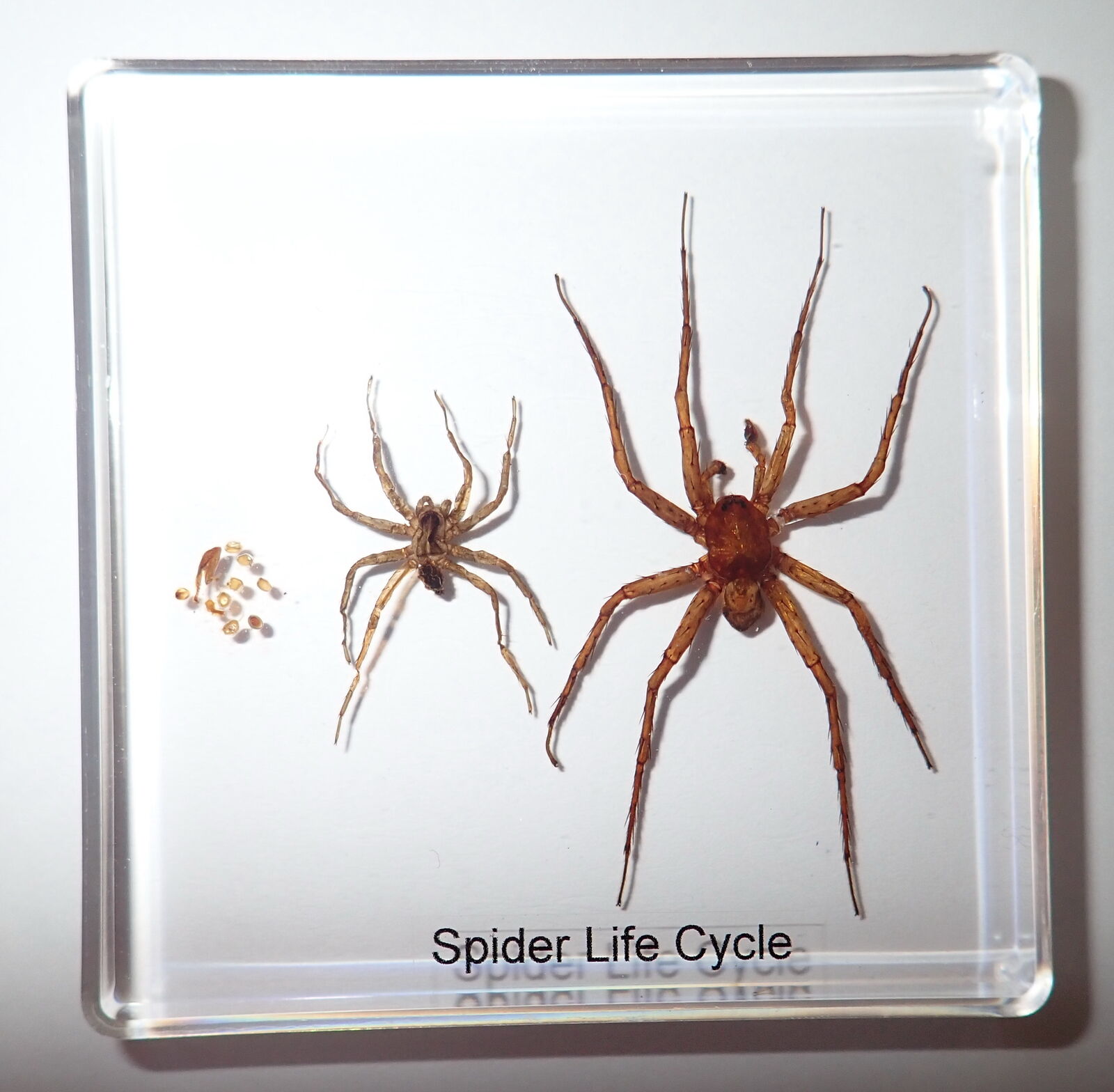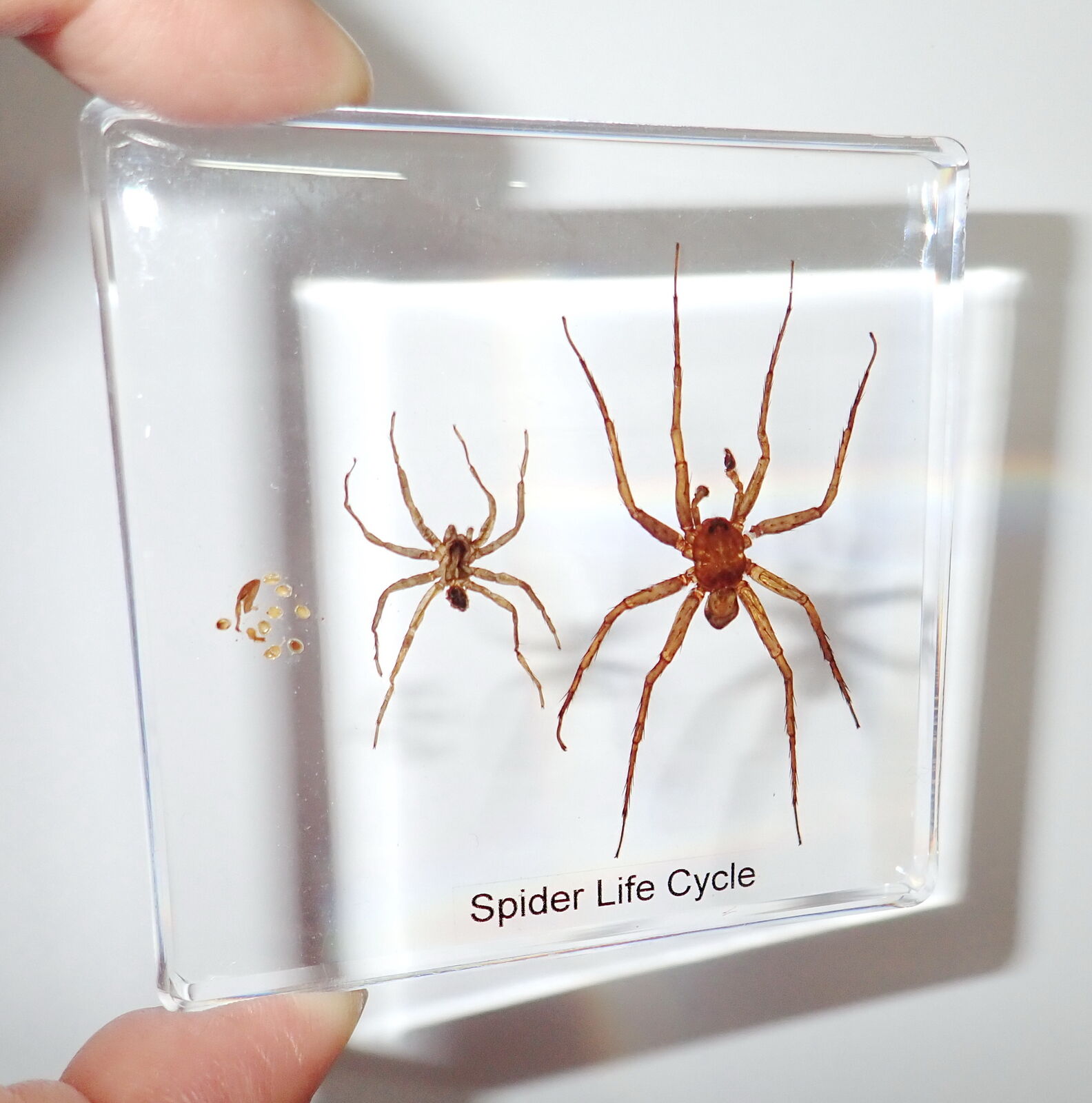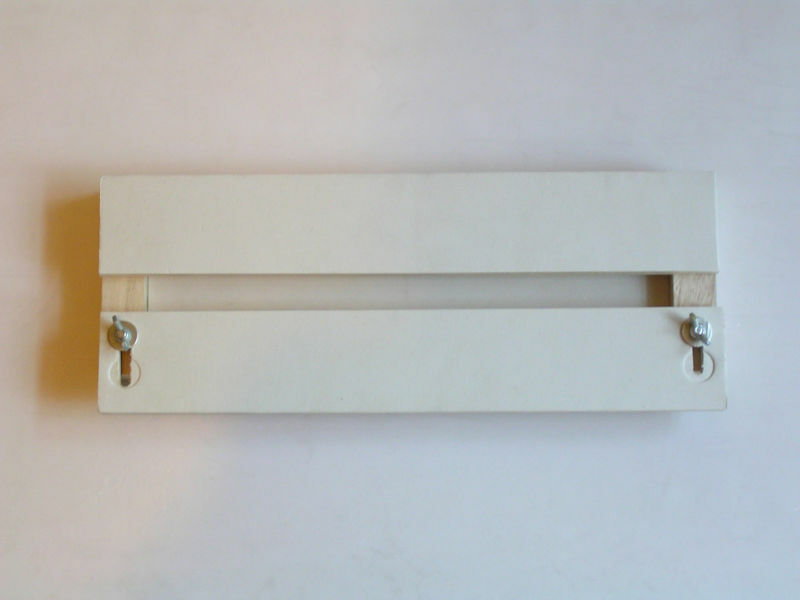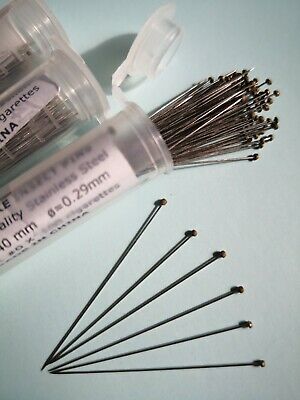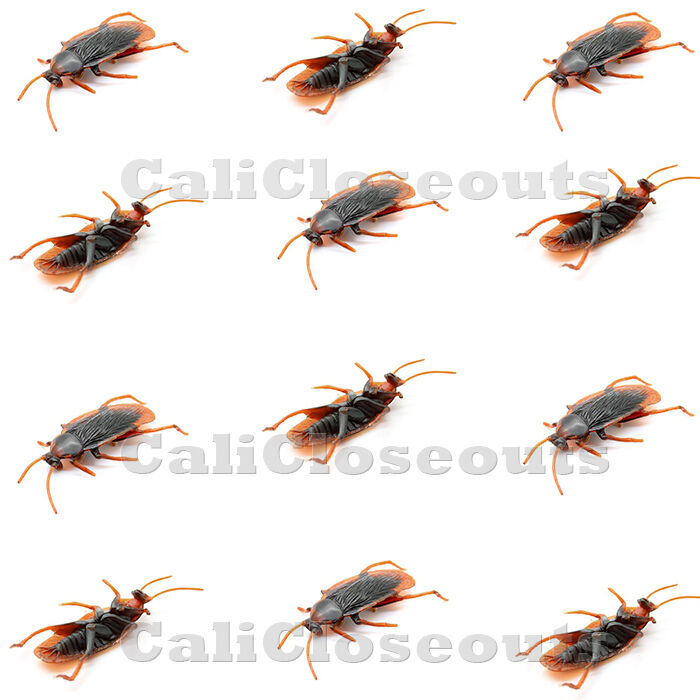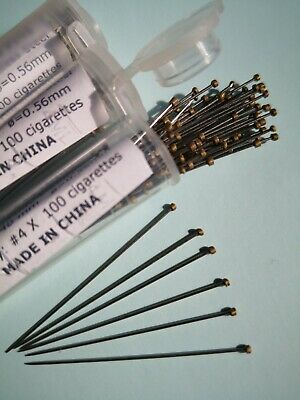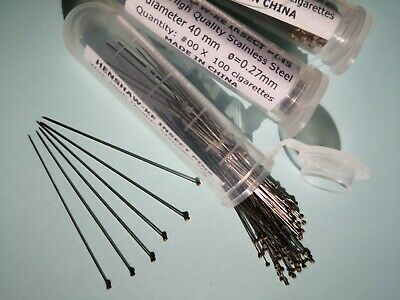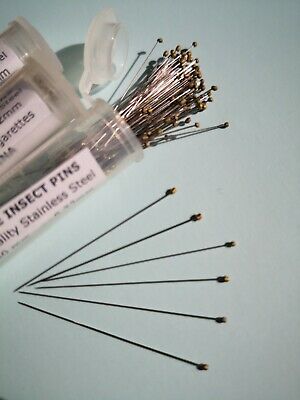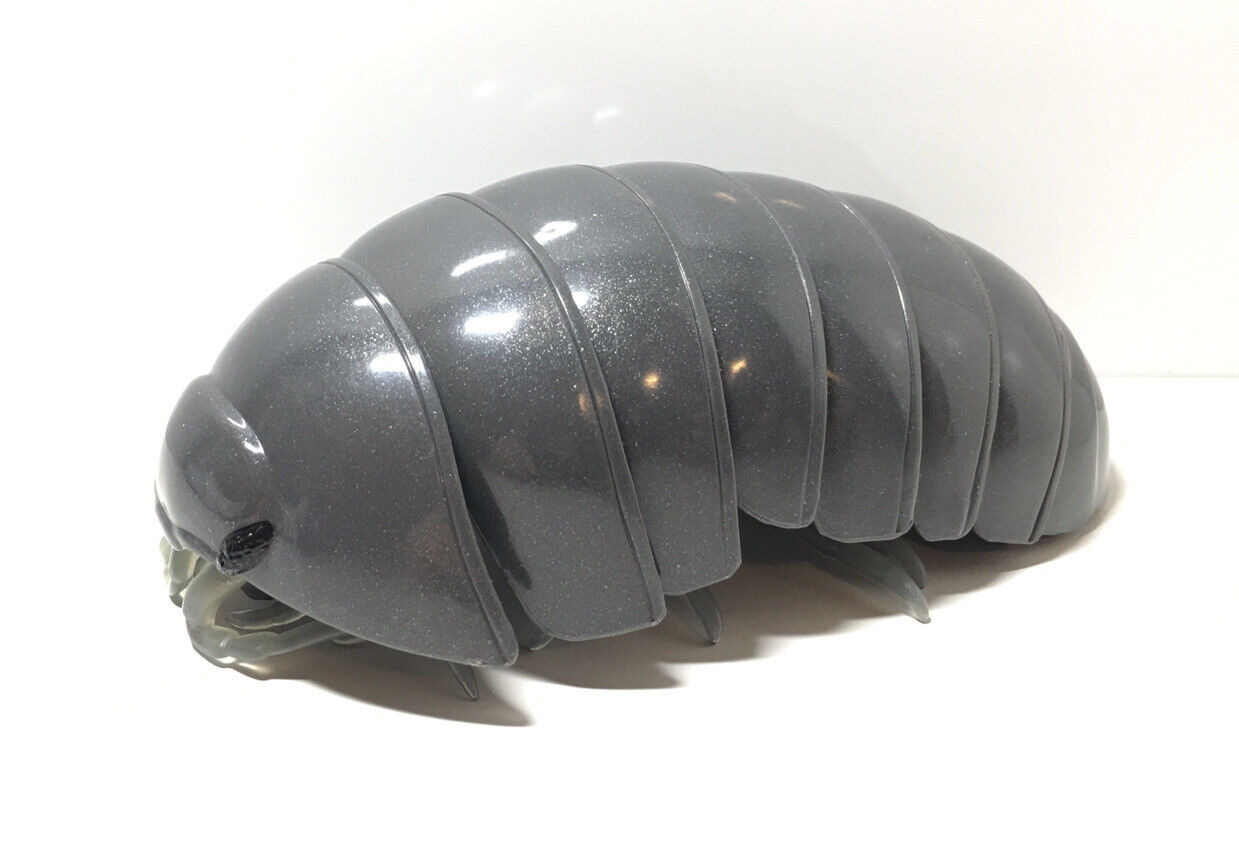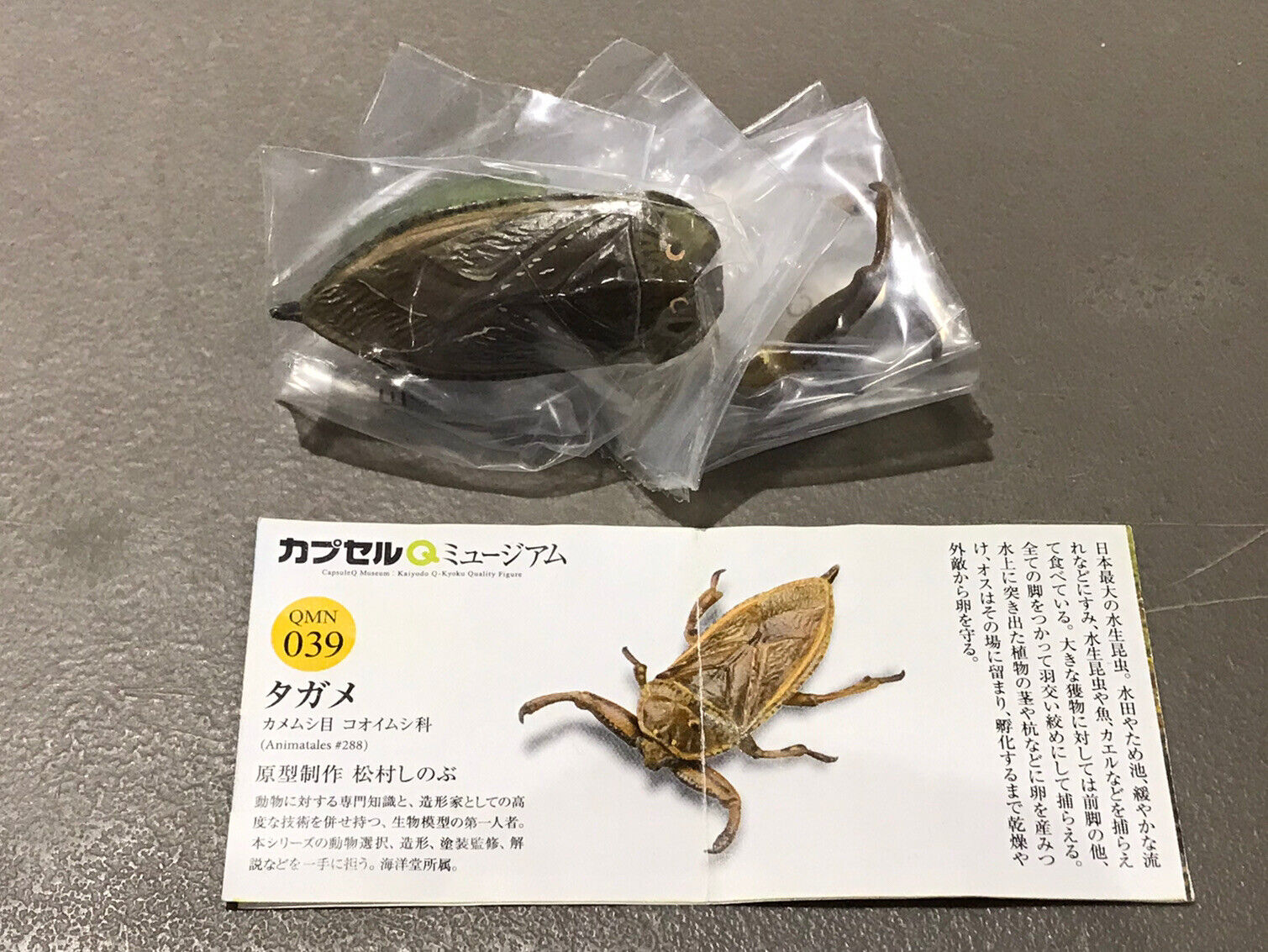-40%
4 Simplified Life Cycle Set Frog & Fly & Spider & Ant Education Animal Slide
$ 21.12
- Description
- Size Guide
Description
4 types of simplified animal Life Cycle: East Asian Bullfrog - Rana rugulosa, House Fly - Musca domestica, Big-head Ant - Pheidologeton diversus, Ghost Spider - Neoscona punctigera specimen encased in clear lucite material. The specimens are crystal clear, indestructible and transparent. Safe, authentic and completely unbreakable product put real life cycles right at your fingertips!Anyone can safely explore the life cycles from every angle.
They are clear enough for microscope observation.
Size of each lucite block is 75x75x9 mm (3x3x0.4 inch).
Weight of each lucite block is 60 gram.
Frog:
The Nature Garden
4 Simplified Life Cycle Set Frog & Fly & Spider & Ant Education Animal Slide
4 types of simplified animal
Life Cycle:
East Asian Bullfrog -
Rana rugulosa,
House Fly -
Musca domestica,
Big-head Ant -
Pheidologeton diversus,
Ghost Spider -
Neoscona punctigera
specimen encased in clear lucite material. The specimens are crystal clear, indestructible and transparent. Safe, authentic and completely unbreakable product put real life cycles right at your fingertips!
Anyone can safely explore the life cycles from every angle.
They are clear enough for microscope observation.
Size of each lucite block is 75x75x9 mm (3x3x0.4 inch).
Weight of each lucite block is 60 gram.
Frog:
1) Eggs 2)
Tadpole with Hindlimb
3) Froglet
House Fly
:
1) Eggs 2) Larve 3) Pupa 4) Adult
Ant
:
1) Eggs 2)
Small Ant
3) Larger Ant
Spider:
1
) eggs 2) infant spider 3) young spider
These are ideal learning aids for students and kids and also very good collectible items for every body.
They are handmade real animal specimen crafts. Each one will be a bit different (specimen size, color and posture) even in the same production batch.
The pictures in the listing are just for reference as we are selling multiple pieces with same pictures.
***
East Asian Bullfrog -
Rana rugulosa
(
Hoplobatrachus rugulosus
)
Order: Anura Family: Dicroglossidae Genus: Hoplobatrachus
Also called Chinese Edible Frog, Chinese Bullfrog, East Asian Bullfrog, or Taiwanese Frog (Hoplobatrachus rugulosus).
Description: A very large frog, second in size only to Rana spinosa, up to 12.5 cm or more in length. Olive-brown in colour, with scattered, black spots. Dorsum with many elongated wrinkles. Lips ornamented with broad, black bars. Is like an enlarged version of R. limnocharis, but can easily be distinguished from the latter by the much larger size, stocky body build, strongly tapering snout and the large eyes, which are set very close together dorsally. Flanks spotted, resembling leopard skin. A skin fold extends from behind each eye to the shoulder. Underside white. Throat with dark mottling.
Habits and habitat: Its habitat is almost identical with that of R. limnocharis, but this large species requires deeper water, and is much less common for several reasons: (1) habitat destruction (this species may be more dependent on rice paddies than R. limnocharis); (2) is relished as a food delicacy locally; (3) the widespread use of insecticide in modern farming methods. Primarily a lowland species, but has been seen in paddy areas at higher elevations, up to about 450 m.
Diet: Feeds mostly on large insects, but also on small rodents and small frogs. The gut contents of some specimens were found to contain partially digested mice.
Reproduction: Breeding season commences in early spring. Tadpoles brownish and large, 5 cm or more in total length. Young frogs about 2.5 cm at metamorphosis.
Distribution: It is found in Cambodia, China, Hong Kong, Laos, Macau, Malaysia, Myanmar, the Philippines, Taiwan, Thailand, and Vietnam. Its natural habitats are freshwater marshes, intermittent freshwater marshes, arable land, pasture land, rural gardens, urban areas, ponds, aquaculture ponds, open excavations, irrigated land, seasonally flooded agricultural land, and canals and ditches.They breed in spring–early summer.
Diagnostic features: Skin wrinkled; with large, irregularly scattered black spots; tapering snout; lips with broad, black bars; checkered spotting on the flanks.
House Fly -
Musca domestica
Order: Diptera Family: Muscidae Subfamily: Muscinae Tribe: Muscini Genus:
Musca
Species:
M. domestica
The
housefly
(also
house fly
,
house-fly
or
common housefly
),
Musca domestica
, is the most common of all flies found in homes, and indeed one of the most widely distributed insects, found all over the world; it is often considered a pest that can carry serious diseases.
The adults are 8–12 mm long. Their thorax is gray, with four longitudinal dark lines on the back. The underside of their abdomen is yellow, and their whole body is covered with hair-like projections. The females are slightly larger than the males, and have a much larger space between their red compound eyes.
Like most Diptera (meaning "two-winged"), houseflies have only one pair of wings; the hind pair is reduced to small halteres that aid in flight stability. Characteristically, the media vein (M1+2 or fourth long vein of the wing) shows a sharp upward bend.
Big-head Ant - Pheidologeton diversus
Family: Formicidae Subfamily: Myrmicinae Tribe: Pheidolini Genus: Pheidole
Distribution: Tropical and sub-tropical Asia (China, Taiwan, Japan)
Description: Total length between 1.3 and 2.5 mm in minor workers. Body color yellowish brown to reddish brown in minor workers: reddish brown to blackish brown in majors. In minor workers: head rectangular with weakly convex posterior margin in full face view; mandibles each with 5 teeth; antennal scapes short, not exceeding posterior margin of head; each of the apical two funicular segments long, their combined length longer than the rest of funiculus; promesonotum relatively strongly convex in profile; metanotal groove deeply incised; dorsum of propodeum convex; propodeal spines long, with acute apices. In major workers: head proportionately large, almost square, with convex posterior margin in frontal view; anterior margin of clypeus straight, with a shallow median notch; mandibles large, triangular, with an acute apical tooth; masticatory margins without distinct teeth; eyes relatively small; ocelli present; antennal scapes 0.5 times as long as head; subpetiolar process present.
Ghost Spider -
Neoscona punctigera
Order: Araneae
Suborder: Araneomorphae
Family: Araneidae
Genus:
Neoscona
Female body length 8 - 12 mm, chest plate in the first dust-color, with white hair on the head, abdomen or back of the dust-color brown, gray and white short-haired closed, the central authorities have 2 black spots were arranged vertically, on the spot the next big small The spots are not obvious at the bottom of the cross with oblique, there is a chest on the back of the base on the tip under the wide spots. Living in low-lying plains to the mountains in the evening at the edge of the woods, under the eaves networks, the network will damage during the day hiding in the net next to the dead leaves or branches inside the habitat, and some individuals in the leaf surface to imitate animals, into 4 feet look like Shuizi like.
Habitat
Often found among the shrubs of the island. In other areas, this species usually rests in the day and builds webs at night to catch and feed. It moves both during the day and night.
Distribution: China, Japan, Korea
Item Specifics
Type :
Collector Plate
Material :
Resin
Country/Region of Manufacture :
China
Modified Item :
No
Payment
By Paypal
Shipping
Free shipping cost.
We send the goods to USA, Canada, UK, Australia, New Zealand, EU countries and some other European and Asian countries by E-express, a kind of fast postal service by Hong Kong Post. It usually takes about 6 to 10 working days for delivery.
We send the goods to other countries by registered airmail and will take about 8 to 14 working days for delivery.
Returns
Returns: We accept returns with any reason in 30 days.
Contact Us
We will answer buyer messages within 24 hours during working days.
The Nature Garden
From all around the world
DESCRIPTION
PAYMENT
SHIPPING
RETURN POLICY
CONTACT US
4 Simplified Life Cycle Set Frog & Fly & Spider & Ant Education Animal Slide
4 types of simplified animal
Life Cycle:
East Asian Bullfrog -
Rana rugulosa,
House Fly -
Musca domestica,
Big-head Ant -
Pheidologeton diversus,
Ghost Spider -
Neoscona punctigera
specimen encased in clear lucite material. The specimens are crystal clear, indestructible and transparent. Safe, authentic and completely unbreakable product put real life cycles right at your fingertips!
Anyone can safely explore the life cycles from every angle.
They are clear enough for microscope observation.
Size of each lucite block is 75x75x9 mm (3x3x0.4 inch).
Weight of each lucite block is 60 gram.
Frog:
1) Eggs 2)
Tadpole with Hindlimb
3) Froglet
House Fly
:
1) Eggs 2) Larve 3) Pupa 4) Adult
Ant
:
1) Eggs 2)
Small Ant
3) Larger Ant
Spider:
1
) eggs 2) infant spider 3) young spider
These are ideal learning aids for students and kids and also very good collectible items for every body.
They are handmade real animal specimen crafts. Each one will be a bit different (specimen size, color and posture) even in the same production batch.
The pictures in the listing are just for reference as we are selling multiple pieces with same pictures.
***
East Asian Bullfrog -
Rana rugulosa
(
Hoplobatrachus rugulosus
)
Order: Anura Family: Dicroglossidae Genus: Hoplobatrachus
Also called Chinese Edible Frog, Chinese Bullfrog, East Asian Bullfrog, or Taiwanese Frog (Hoplobatrachus rugulosus).
Description: A very large frog, second in size only to Rana spinosa, up to 12.5 cm or more in length. Olive-brown in colour, with scattered, black spots. Dorsum with many elongated wrinkles. Lips ornamented with broad, black bars. Is like an enlarged version of R. limnocharis, but can easily be distinguished from the latter by the much larger size, stocky body build, strongly tapering snout and the large eyes, which are set very close together dorsally. Flanks spotted, resembling leopard skin. A skin fold extends from behind each eye to the shoulder. Underside white. Throat with dark mottling.
Habits and habitat: Its habitat is almost identical with that of R. limnocharis, but this large species requires deeper water, and is much less common for several reasons: (1) habitat destruction (this species may be more dependent on rice paddies than R. limnocharis); (2) is relished as a food delicacy locally; (3) the widespread use of insecticide in modern farming methods. Primarily a lowland species, but has been seen in paddy areas at higher elevations, up to about 450 m.
Diet: Feeds mostly on large insects, but also on small rodents and small frogs. The gut contents of some specimens were found to contain partially digested mice.
Reproduction: Breeding season commences in early spring. Tadpoles brownish and large, 5 cm or more in total length. Young frogs about 2.5 cm at metamorphosis.
Distribution: It is found in Cambodia, China, Hong Kong, Laos, Macau, Malaysia, Myanmar, the Philippines, Taiwan, Thailand, and Vietnam. Its natural habitats are freshwater marshes, intermittent freshwater marshes, arable land, pasture land, rural gardens, urban areas, ponds, aquaculture ponds, open excavations, irrigated land, seasonally flooded agricultural land, and canals and ditches.They breed in spring–early summer.
Diagnostic features: Skin wrinkled; with large, irregularly scattered black spots; tapering snout; lips with broad, black bars; checkered spotting on the flanks.
House Fly -
Musca domestica
Order: Diptera Family: Muscidae Subfamily: Muscinae Tribe: Muscini Genus:
Musca
Species:
M. domestica
The
housefly
(also
house fly
,
house-fly
or
common housefly
),
Musca domestica
, is the most common of all flies found in homes, and indeed one of the most widely distributed insects, found all over the world; it is often considered a pest that can carry serious diseases.
The adults are 8–12 mm long. Their thorax is gray, with four longitudinal dark lines on the back. The underside of their abdomen is yellow, and their whole body is covered with hair-like projections. The females are slightly larger than the males, and have a much larger space between their red compound eyes.
Like most Diptera (meaning "two-winged"), houseflies have only one pair of wings; the hind pair is reduced to small halteres that aid in flight stability. Characteristically, the media vein (M1+2 or fourth long vein of the wing) shows a sharp upward bend.
Big-head Ant - Pheidologeton diversus
Family: Formicidae Subfamily: Myrmicinae Tribe: Pheidolini Genus: Pheidole
Distribution: Tropical and sub-tropical Asia (China, Taiwan, Japan)
Description: Total length between 1.3 and 2.5 mm in minor workers. Body color yellowish brown to reddish brown in minor workers: reddish brown to blackish brown in majors. In minor workers: head rectangular with weakly convex posterior margin in full face view; mandibles each with 5 teeth; antennal scapes short, not exceeding posterior margin of head; each of the apical two funicular segments long, their combined length longer than the rest of funiculus; promesonotum relatively strongly convex in profile; metanotal groove deeply incised; dorsum of propodeum convex; propodeal spines long, with acute apices. In major workers: head proportionately large, almost square, with convex posterior margin in frontal view; anterior margin of clypeus straight, with a shallow median notch; mandibles large, triangular, with an acute apical tooth; masticatory margins without distinct teeth; eyes relatively small; ocelli present; antennal scapes 0.5 times as long as head; subpetiolar process present.
Ghost Spider -
Neoscona punctigera
Order: Araneae
Suborder: Araneomorphae
Family: Araneidae
Genus:
Neoscona
Female body length 8 - 12 mm, chest plate in the first dust-color, with white hair on the head, abdomen or back of the dust-color brown, gray and white short-haired closed, the central authorities have 2 black spots were arranged vertically, on the spot the next big small The spots are not obvious at the bottom of the cross with oblique, there is a chest on the back of the base on the tip under the wide spots. Living in low-lying plains to the mountains in the evening at the edge of the woods, under the eaves networks, the network will damage during the day hiding in the net next to the dead leaves or branches inside the habitat, and some individuals in the leaf surface to imitate animals, into 4 feet look like Shuizi like.
Habitat
Often found among the shrubs of the island. In other areas, this species usually rests in the day and builds webs at night to catch and feed. It moves both during the day and night.
Distribution: China, Japan, Korea
Item Specifics
Type :
Collector Plate
Material :
Resin
Country/Region of Manufacture :
China
Modified Item :
No
Payment
By Paypal
Shipping
Free shipping cost.
We send the goods to USA, Canada, UK, Australia, New Zealand, EU countries and some other European and Asian countries by E-express, a kind of fast postal service by Hong Kong Post. It usually takes about 6 to 10 working days for delivery.
We send the goods to other countries by registered airmail and will take about 8 to 14 working days for delivery.
Returns
Returns: We accept returns with any reason in 30 days.
Contact Us
We will answer buyer messages within 24 hours during working days.
All right reserved.
Shop Category
Store Home
Fossils
◈ Insects
◈ Trilobite
◈ Sea animals
Tektite
◈ Loose lots
◈ Single stone
◈ Tektite carvings
Lapis Lazuli
▷ Polished stones
♢ Loose lots
♢ Single stones
▷ Rough stones
♢ Loose lots
♢ Single stone
◈ Craft items
Turquoise
◈ Natural turquoise
◈ Turquoise substitutes
Stone carving
Rough Stone & mineral
◈ Single piece
◈ Loose lots
Polished Stone & mineral
◈ Single piece
◈ Loose lots
Rough ruby & sapphire
◈ Ruby
◈ Sapphire
Star Ruby & Sapphire
◈ Star Ruby - Opaque
◈ Star Ruby - Transparent
◈ Blue Star Sapphire
◈ Star Sapphire - other colors
Animal specimen items
◈ Single specimen
◈ Life cycle
◈ Collection set
◈ Key ring
◈ Bracelet or bangle
◈ Necklace or pendant
◈ Magnet
◈ Ring
◈ Hanger
◈ Cabochon
◈ Sphere, ball
◈ Laminated specimen
◈ Computer mouse
◈ Stapler
◈ Pen
◈ Bottle Opener
◈ Dome paperweight
◈ Earring
◈ Skeleton
◈ Fish
◈ Butterfly
Plant specimen
◈ Flower
◈ Leaf
◈ Life Cycle
◈ Collection Set
◈ Laminated items
◈ Seed or root
Stone, mineral, fossil box set
Paper Cuts
Jewelry crafts
Other
Hot Item
Powdered Cinnabar Crystal Native Pigment Material 40 gram Lot
USD 18.00
Black Indochinite Tektite Stone 10 pieces Plastic Box Set Natural Specimen Kit
USD 14.00
10 Mohs Scale Stone Set clear plastic box Learning Real Specimen Kit
USD 16.00
Fine Ground Cinnabar Crystal Tiny pieces 40 gram Lot
USD 18.00
Bat Skeleton GREATER BAMBOO BAT in Clear Block Education Real Animal Specimen
USD 16.00
Picture
New List Item
Angel Fish & Clamworm & Newt Collection Set 75x75x mm Slide Education Specimen
USD 24.99
Red Headed Centipede in 75x75x10 mm Clear Square Slide Education Specimen
USD 11.99
Centipede & Dragonfly & Golden Scorpion Collection Set 75x75x mm Slide Specimen
USD 24.99
Centipede & Dragonfly & Scorpion & AngelFish & Clamworm & Newt 6 Collection Set
USD 39.99
Clamworm Slender Ragworm in 75x75x10 mm Clear Square Slide Education Specimen
USD 10.99
Custom Item
Powered by SoldEazy
